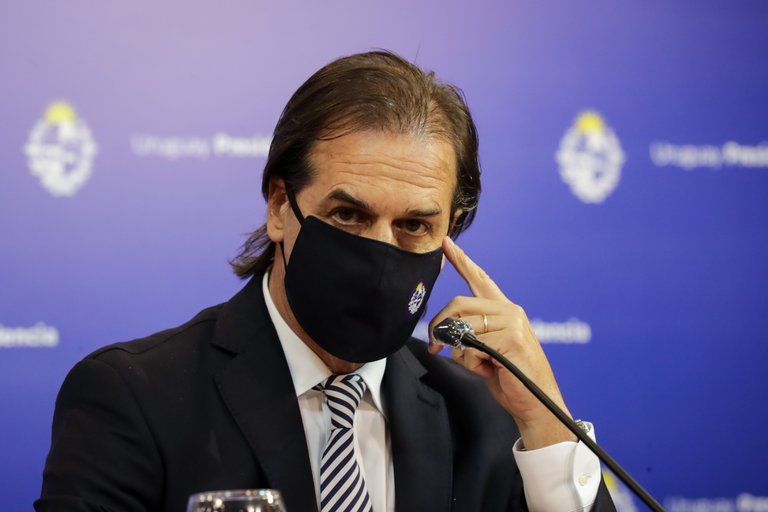RIO DE JANEIRO, BRAZIL – Uruguayan President Luis Lacalle Pou announced on Thursday, January 21st, that his government has finally selected the Pfizer/BioNTech and Chinese Sinovac vaccines to begin the Covid-19 vaccination campaign in the country, which is currently experiencing an alarming surge in cases and has closed its borders to prevent the spread of the coronavirus.

“The government has just signed an agreement with Pfizer and Sinovac for the supply of vaccines to our country. In parallel, we are negotiating the purchase of more vaccines with other suppliers,” announced Lacalle Pou on Twitter, adding that further information would be provided in the coming hours.
Uruguay was one of the two countries in South America, along with Paraguay, that had not yet announced the purchase of vaccines from any laboratory, although Lacalle Pou had advanced that he was negotiating with several laboratories and was unable to disclose further details due to confidentiality issues.
Immediately after the president’s announcement, several cabinet officials celebrated the news on social media. Among the first to react was Minister of Public Health Daniel Salinas, who posted a short message: “#Vaccines secured for our Uruguay”.
The Uruguayan president has summoned his Ministers for a Cabinet meeting next week, although a prior announcement with the confirmation of further details on the vaccination plan is not ruled out.
On Friday, Uruguay broke its daily record with 17 Covid-19 deaths in a day in which 1,186 new cases were registered, reaching the figure of 8,091 active cases, according to the National Emergency System (SINAE). With the 17 deaths that day, the country totals 364 deaths since the start of the pandemic.
“Red risk zone”
According to data from the Uruguayan CovidD-19 Interdisciplinary Data Analysis Group (GUIAD-COVID-19), Uruguay entered the red risk zone in the Harvard index for the coronavirus pandemic last week, with an average of 25 cases per 100,000 people a week.
Three of the country’s 19 provinces are in the red risk zone: Rivera (north, bordering Brazil), with 46.84 cases per 100,000 inhabitants; Montevideo (south), with 39.79; and Rocha (southeast, also bordering Brazil), with 32.01, according to the GUIAD-COVID-19 charts.
In light of this situation, scientists began to demand additional restrictions from the government. Among them, epidemiologist and researcher Julio Medina, who stated that protecting the healthcare system was a priority. “The virus is ahead of us, it has gained even more advantage”, he wrote on Twitter, and argued: “221 days to pass from green to yellow / 56 days to pass from yellow to orange / 32 days to pass from orange to red.”
Due to the surge in cases in recent weeks, in what is considered the first wave of the pandemic in the country, the Uruguayan government reported on January 6th that it would keep its borders closed (including for Uruguayans and residents) until the end of the month.
However, the president announced the extension of the two-hour closure of bars and restaurants, which until January 10th was midnight, and the reopening of public shows. In both cases, he left it to the discretion of local authorities who, as in Montevideo, decided on more restrictive measures.
Among the measures in place, the law maintains regulations on meeting rights – in force for two months – in crowded areas with a health risk, as well as the recommendation of remote work.
Among the risks observed recently is the return of many Montevideo residents who left for the coast for their holiday period, with the resulting relaxation of protective measures, and who are now returning to their jobs. In light of this, authorities issued a statement recommending remote work and social isolation for 10 days whenever possible.

